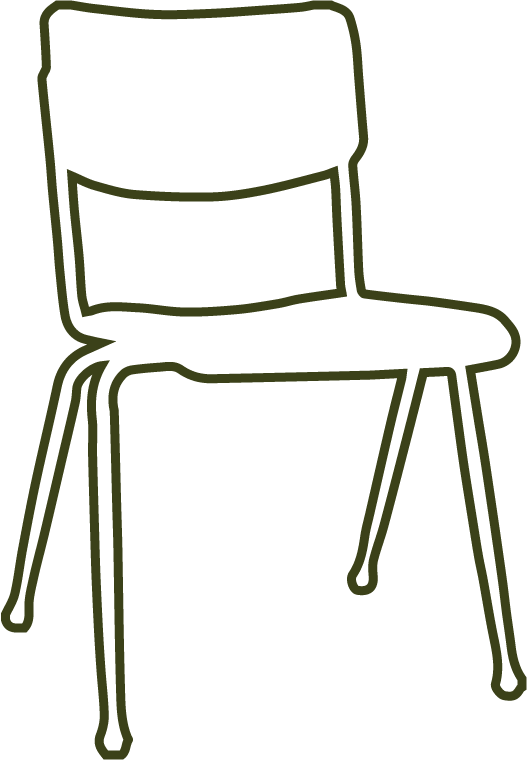You are reading Good Kings, Bad Kings, a novel told from the perspectives of teenagers and staff in an institution for juveniles with disabilities. A woman who has worked for decades in rehab proposes the intro question: If you were disabled, would you want to be institutionalized or cared for by family? Most of you choose an institution—for fear of burdening our families—although later, digging into the novel, you also acknowledge the dangers and problems of “the system” in such a place.
Women arrive slowly, one tells you she “ratted out” the C.O. who tried to prevent her from coming to class; sent a note to the major, as he had told her to. Another who enters always with a long, lilting “heyyyy,” is in‑and‑out today three times, and in between socializes loudly in the hallway. The repeated interruptions aggravate you.
You name the “bad kings,” people who run systems and make money from them, yet they too are pieces in a larger game. Would your judgment of them change if you heard their stories? Your student says, the story doesn’t justify the actions. You take it to the penal system, note that it’s not random who’s inside. Not the C.O.s either, you think.
The writing prompt is a passage about being in solitary confinement inside the institution, and you hear about spending two and a half years in solitary, learning to be closer to God, to know herself better, to feel free when she’s “just in jail,” to love. And: We are not taught to be by ourselves, what does it matter if your movement is restricted? You’ll get out later…now, read a book. Now when I close my eyes I can identify sounds, I know which guard it is by their walk.
In your planning session you debate what to do with the in‑and‑out woman: feel she’s disrupting, using you to get off the unit, but hate to further constrain freedom of movement. When on Friday she enters and announces she’s just here to get the new book, your colleague follows her into the hallway and says (as you’ve agreed) that you’re offering a book group, value her contributions but not the interruptions; she nods, understands, says she’s researching her case. Your colleague feels like a C.O. calling her out.
In search of your own connections with disability, you begin with head‑shaking—no, you don’t have these experiences—and then one by one uncover forgotten connections: the way she compensated for a loss of hearing at age 10, the fear in her family that the new baby could inherit schizophrenia. Disability, especially disability that comes with aging, creates a kind of porosity among you.
